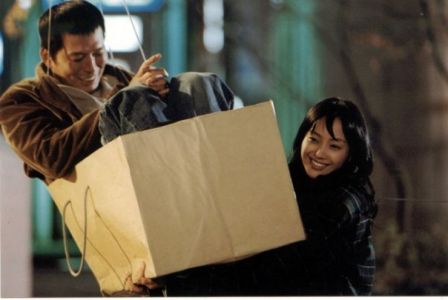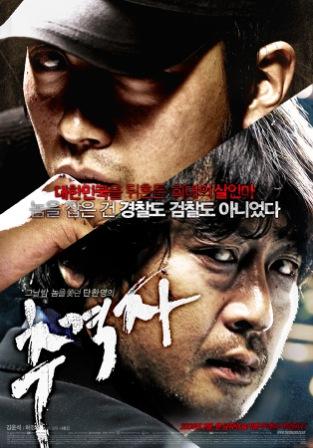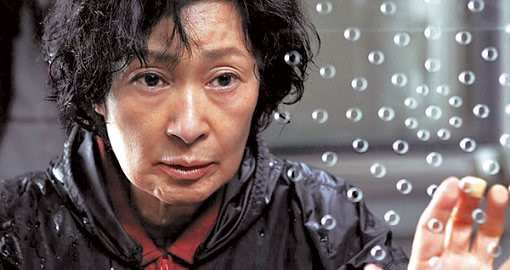During my summer holiday in Hawai’i, I finally had some Asian cinema-related experiences, so voila! Here’s a new blog post! Enjoy!
Blast from the Past
Hong Kong cinema fans might be amused to know that, while visiting my girlfriend’s parents’ house, I saw Maggie Q’s 11th grade photo in an old Mililani High School Yearbook. To be fair to Ms. Quigley, I won’t reproduce the image here, but let’s just say that even one of the prettiest actresses around can look a little dorky in her yearbook photo. To be fair, she actually looks pretty cute, but there’s absolutely no hint of the sex symbol/Maxim covergirl/male fantasy she was to become. There’s no hint of that in my yearbook photo either.

“If you publish that yearbook pic, I’ll make you watch Gen Y Cops…”

“…LIKE THIS!”
But this isn’t going to be a post about embarrassing yearbook photos. No, this entry is actually about “translation,” although I doubt I’ll get too deep about it. It’s more like, “Hey, isn’t that an interesting coincidence?” To explain, I should say that I recently saw three films, all of which deal with translation in varying degrees.
DETROIT METAL CITY
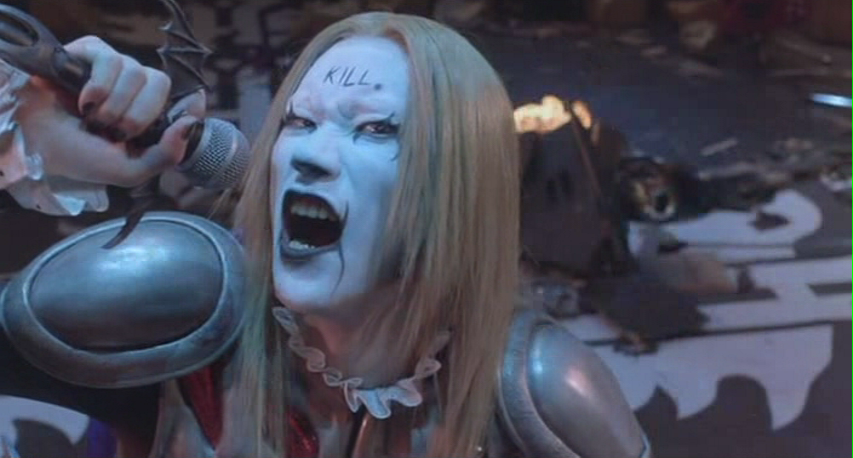
“Thank you, Rocklahoma!”
First up is Detroit Metal City,a 2008 Japanese film that translates the popular (and utterly profane) death metal manga to the big screen…with mixed results. Smartly, the film adapts the first volume of the manga (with elements from later stories) and turns what essentially played out in a purely episodic fashion into a clearly structured, easy-to-understand character arc. So far so good.
Since Kevin has already reviewed the film, I won’t go into too much detail about the plot. But basically, the premise of the film involves Negishi, a young kid from the Japanese countryside who leads a dual life — by day, he’s a dork with a mushroom haircut and aspirations to sing saccharine sweet love songs, but by night, he’s Krauser II — the lead singer of the death metal band, Detroit Metal City (or Detoroito Metaru Shiti for you Japanese folks. Yes, I said, “shiti.”). Not only does Krauser wears KISS-style makeup and body armor, but he also sings about such heartwarming subjects as rape and murder. As is, that dichotomy within a single character is tough to pull off, but somehow the manga succeeds in allowing you to believe that a geek like Negishi could actually channel his repressed demons into such a charismatic frontman.
On film, however, such a transformation would require a Christopher Reeve-level performance to get audiences to believe that one guy could really be these two different characters — and not just because it says so in the script. I have to say that Kenichi Matsuyama isn’t up to the task. Don’t get me wrong, he’s masterful as Krauser II — especially in the character’s silly, unguarded moments.
But when he’s Negishi, it’s as if neither Matsuyama, nor the director ever read the manga. Even worse, it’s as if neither of them have any idea how real dorks act in public. In the manga, Negishi is a meek guy, but he’s an everyman. Of course, any manga that’s based on dual identities, embarrassing misunderstandings, and increasingly awkward situations requires a bit of mugging, doubletakes, etc. But in the comic, no one is ever really privy to Negishi’s Looney Tunes-style facial contortions, which — now that I’ve taken a second look at the manga — are actually pretty rare. Yet Matsuyama insists on playing Negishi as if he were a) socially retarded, b) a quasi-gay stereotype, and c) a manic weirdo who would freak out just about anybody if you actually had to carry on a conversation with him. Just look at these pictures:
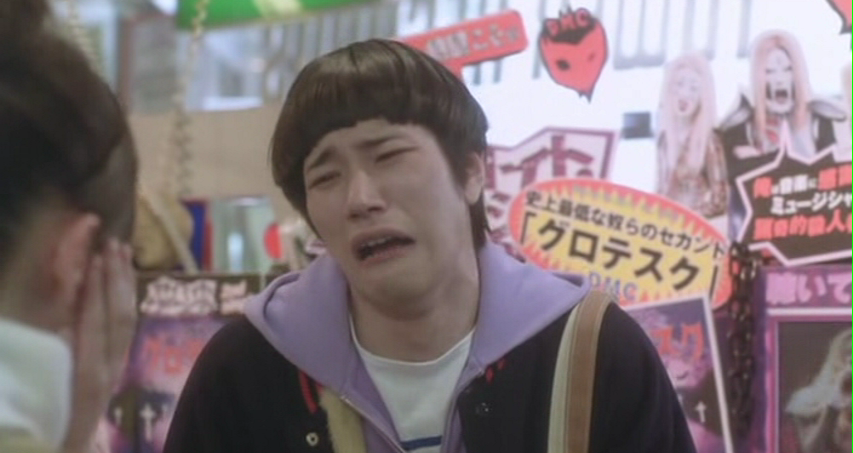
“Why did they have to kill off L?”
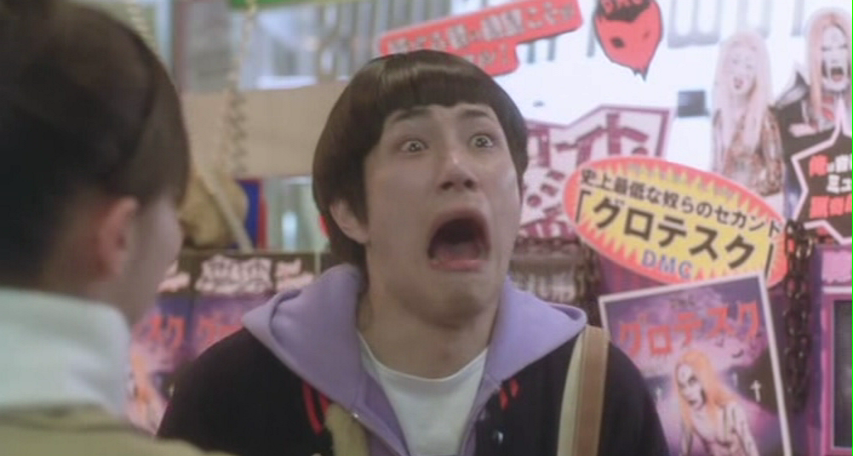
“Look, I’m acting!”
In real life, Rosa Kato’s character (and the rest of the supporting cast) would say, “What the $%^& is wrong with you?” Or walk away. Or run. I couldn’t for one minute believe that Rosa Kato’s character would actually fall for this guy. He’s supposed to be an everyman, but the identification-level here is practically nonexistent. You can only feel sorry for the guy. In that sense, Matsuyama’s performance is a terrible translation of the manga. On the bright side, it does include the funniest part of the original manga, too, which unfortunately isn’t on Youtube. Here’s a preview:
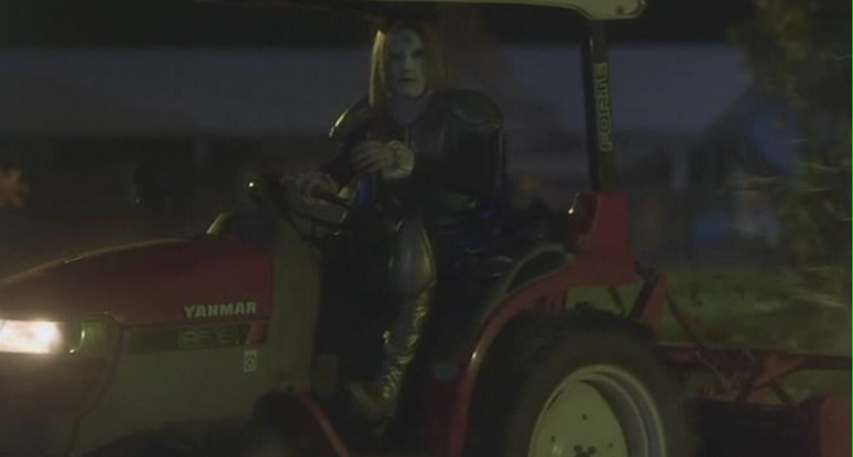
“Thank God, I’m a Country Boy!”
Still, it’s a funny movie, with half a brilliant performance, half a grating one, and a kind of lackluster ending. The woman playing Negishi’s mom is pretty funny though.
THE GOOD, THE BAD, AND THE WEIRD
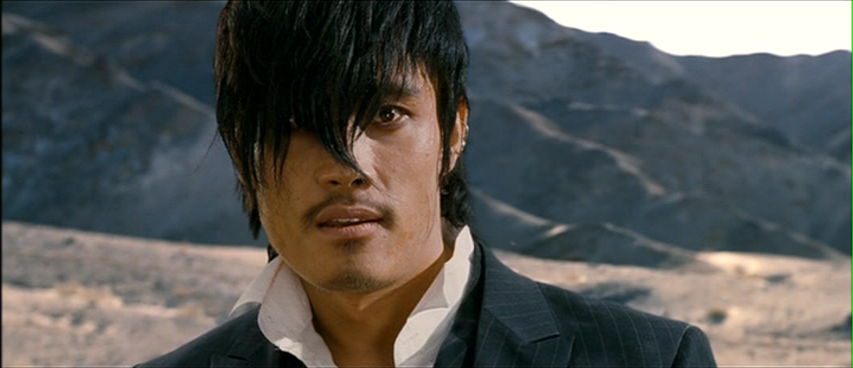
”So we meet again, Snake Eyes”
The second film I watched was The Good, the Bad, the Weird, which translates the Western — specifically the Sergio Leone-style Spaghetti Western — to a Korean (actually Manchurian) locale. I’m planning to write a full-length review of the film (I’m surprised no one has, although Kozo’s alter-ego Koh So seems to have done so. I’m not sure what to make of an alter ego has an alter ego!), so I’ll keep my comments short. First off, it’s a great film, effectively mimicking the style of Sergio Leone, while bringing something new to the table at each turn. Bravura cinema at its finest. My only complaints involve the lack of emphasis on “The Good” and a lackluster final standoff that only looks like Leone, but feels kind of hollow, as does the film’s ultimate outcome.
RAMEN GIRL
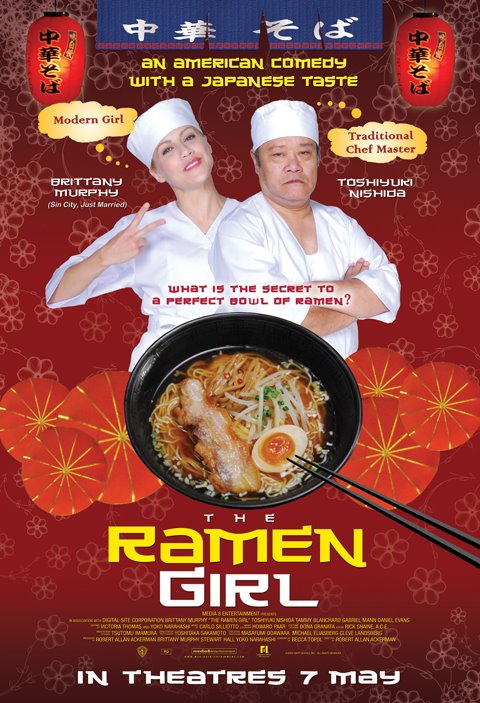
How does this movie exist?
Sometimes a film slips through the cracks — like, say a Matthew McConaughey/Kate Beckinsdale/Gary Oldman film about dwarfism — and Ramen Girl is just such a film. The kind you never heard of, never saw any previews of, and are surprised as hell when you see it at Blockbuster.
Ramen Girl deals with an entirely different kind of translation than the previous films. A US-Japan co-production featuring an American star, an American director, Japanese cast and crew, and a Korean leading man who was raised in Japan. Brittany Murphy stars as an American stranded in Japan who befriends a ramen chef (Toshiyuki Nishida), who begrudgingly becomes her mentor — even though they don’t speak each others language. That fact requires a HUGE suspension of disbelief regarding pretty much everything that happens in the film. On the bright side, I have to give kudos to the filmmakers for including a Korean male character (Park Sohee), who is intelligent, handsome, and actually sexual, which makes him the rare exception when it comes to the decidedly non-sexual Asian male/white female romantic pairings in mainstream Hollywood cinema (I’m looking at you, Jackie Chan). Ultimately, I have acknowledge that this isn’t some magnificent film about cross-cultural understanding, but the Japanese actors are pretty amusing and the film is innocuously cute.
Perhaps to secure a PG-13 rating for Blockbuster, the American DVD contains a significant amount of looping to edit out all the “shits,” fucks,” and what have you, which does a lot to undermine the emotion in these scenes. In fact, if you watch the deleted scenes on the DVD, you’ll find that most of the good parts of the movie were left on the cutting room floor. Granted, some of the footage feels a bit like outtakes of an ad for Japanese tourism, but ultimately, a lot of the excised bits involve some really nice character stuff, important exposition (How the hell does she afford that apartment?), and various little touches that would have given the film more depth and texture. As is, it’s just a cute, but wholly forgettable date movie.
Oh, and what is up with this American packaging?
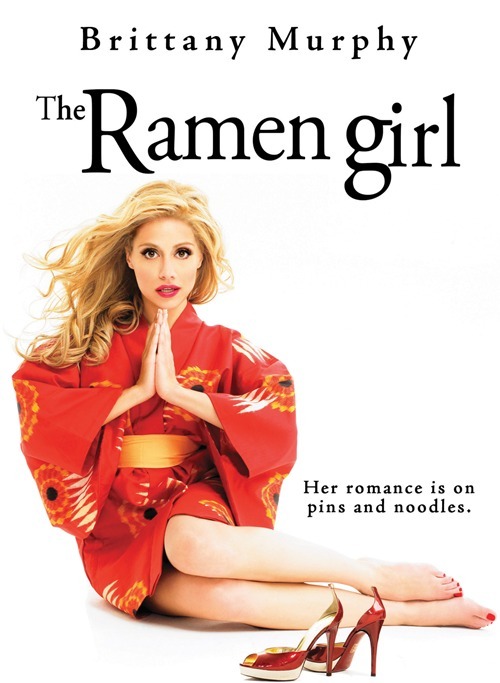
Next time: Daniel Henney in My Father…and, um, other stuff.
